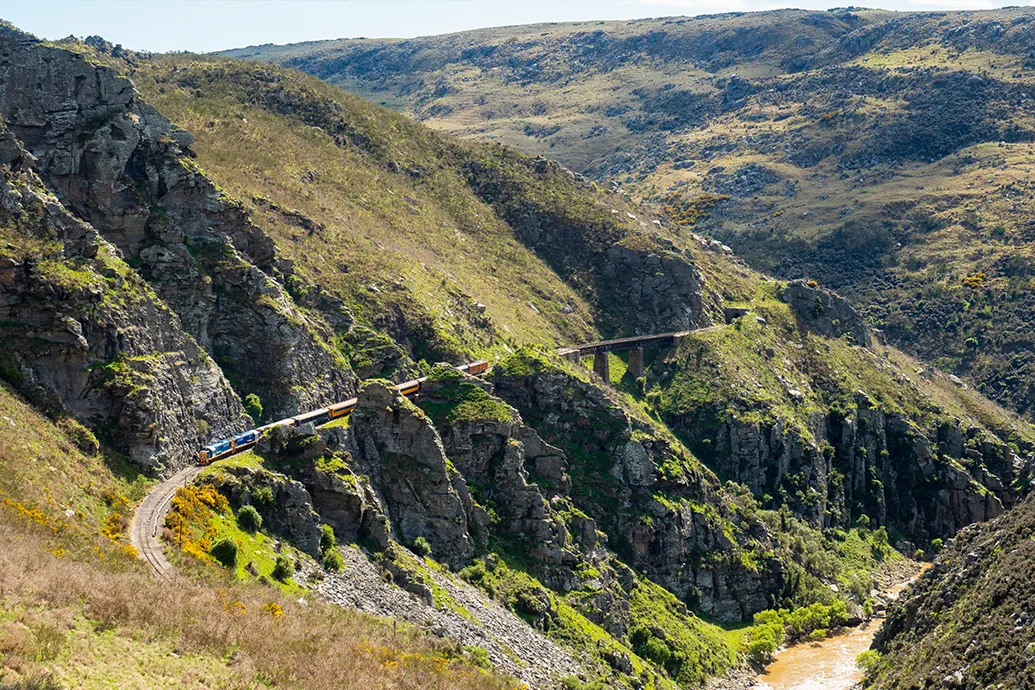Weaving around craggy cliffs, rolling hills and over century-old bridges, the Taieri Gorge train is unapologetically unhurried, as each bend whispers more of Otago's history, amongst scenery that speaks for itself.
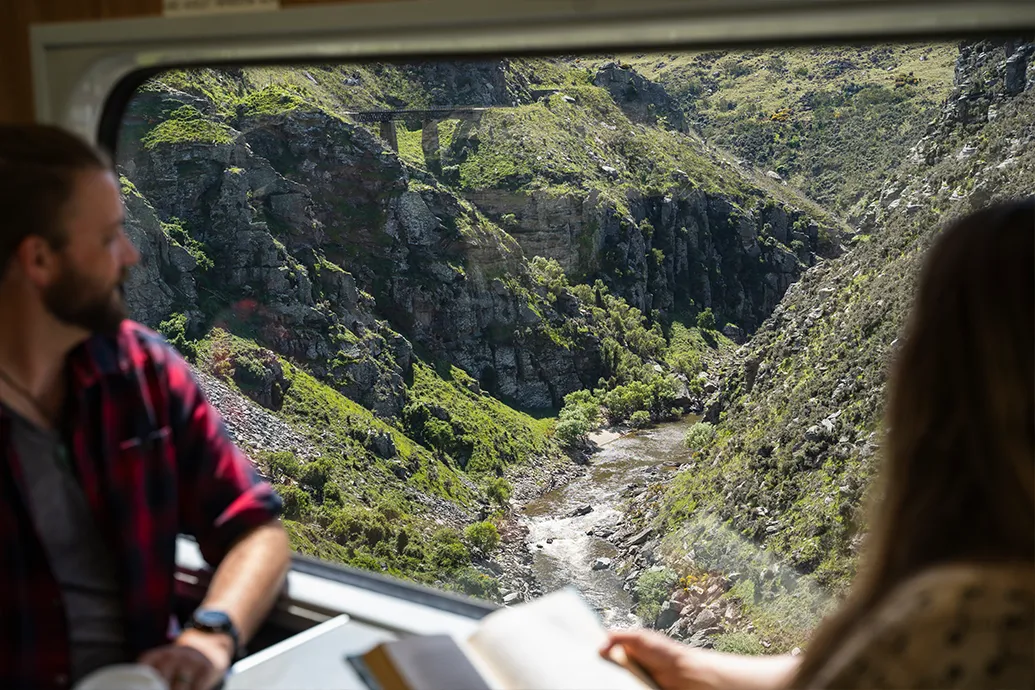
A guard dressed in suspenders greeted me warmly as I stepped aboard the busy train. It was a beautiful, sunny day in Dunedin – the perfect weather for a ride through Otago’s rugged countryside.
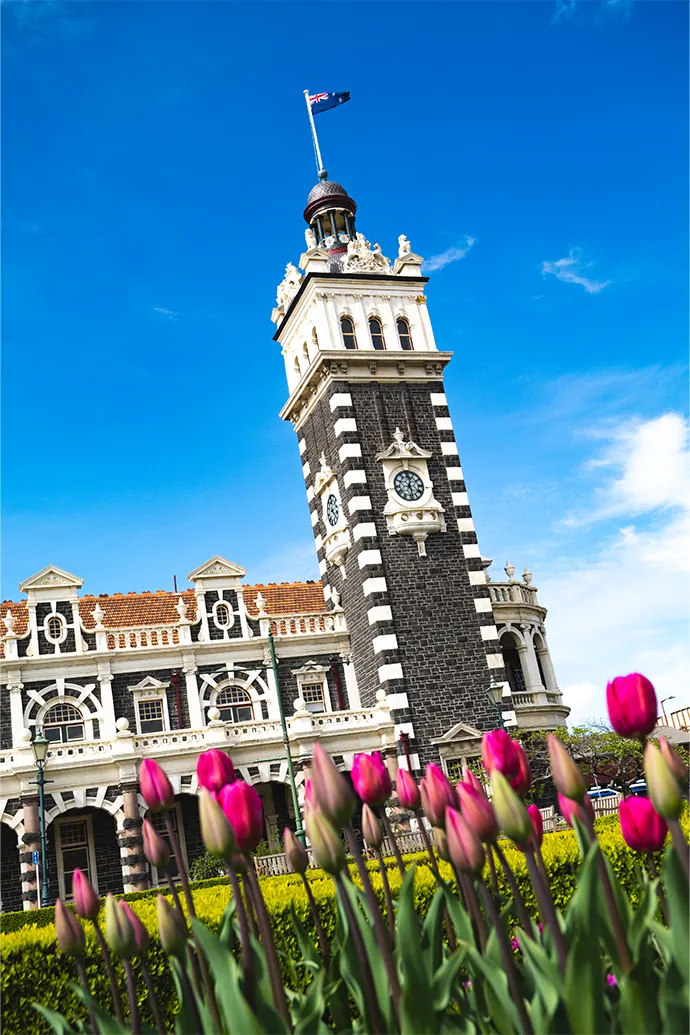
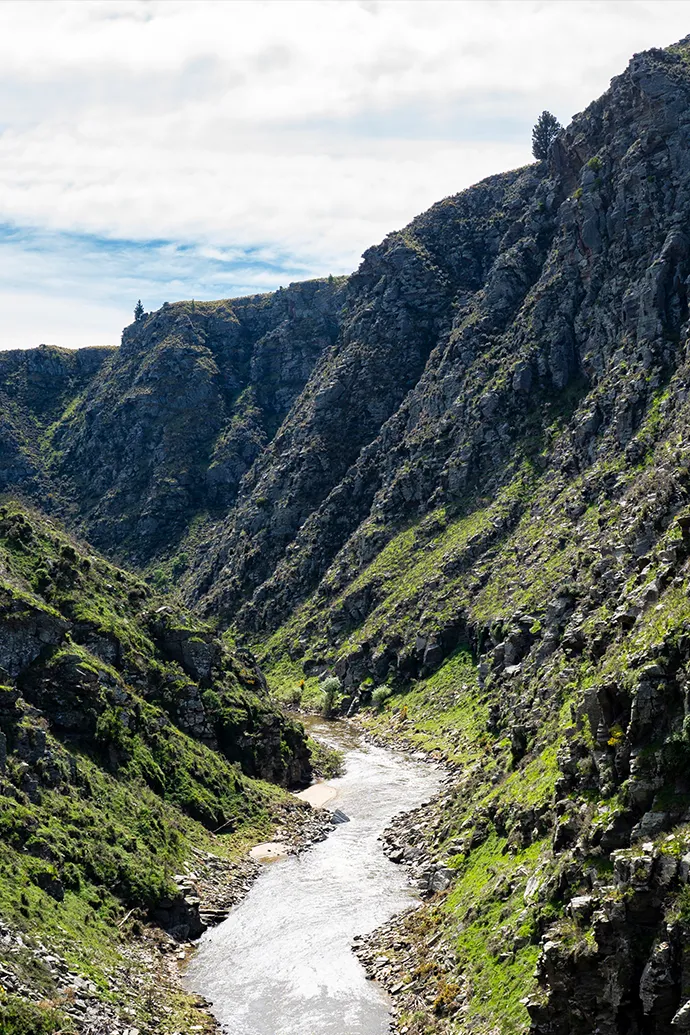
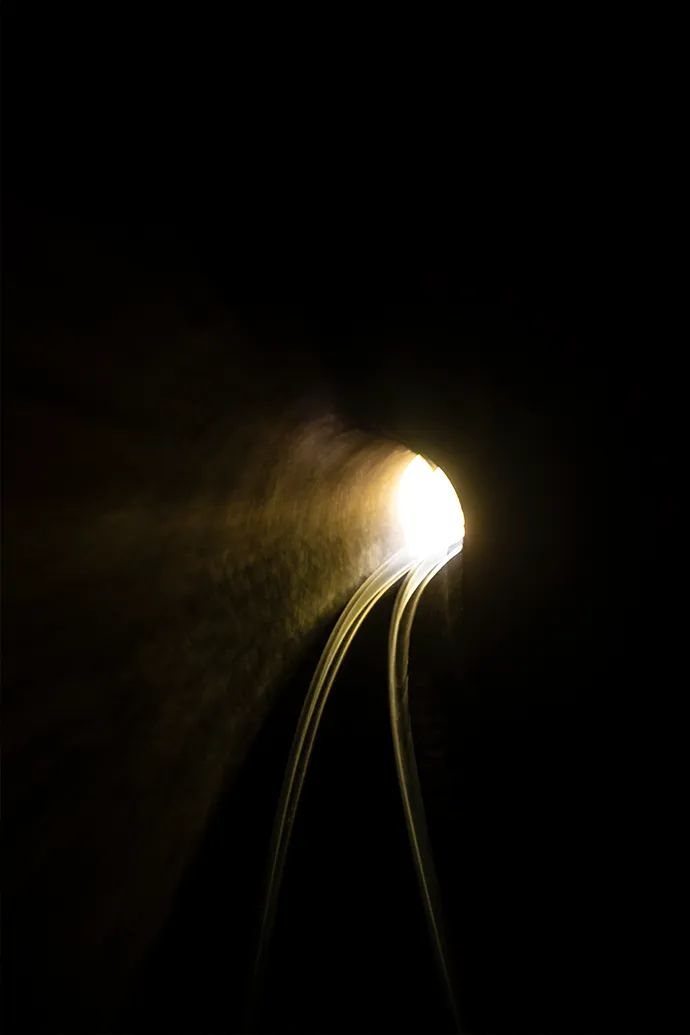
After settling into my modest yet comfortable carriage, the train horn sounded, and we waved at the excited tourists as we pulled away from the Dunedin Railway Station. The train rumbled with life, rocking steadily as it made its way through the city. An onboard commentator transported us back to the 19th century with cultural stories from Otago, including Māori mythology. It felt like we were stepping into the past, reliving the rich history of bygone days.
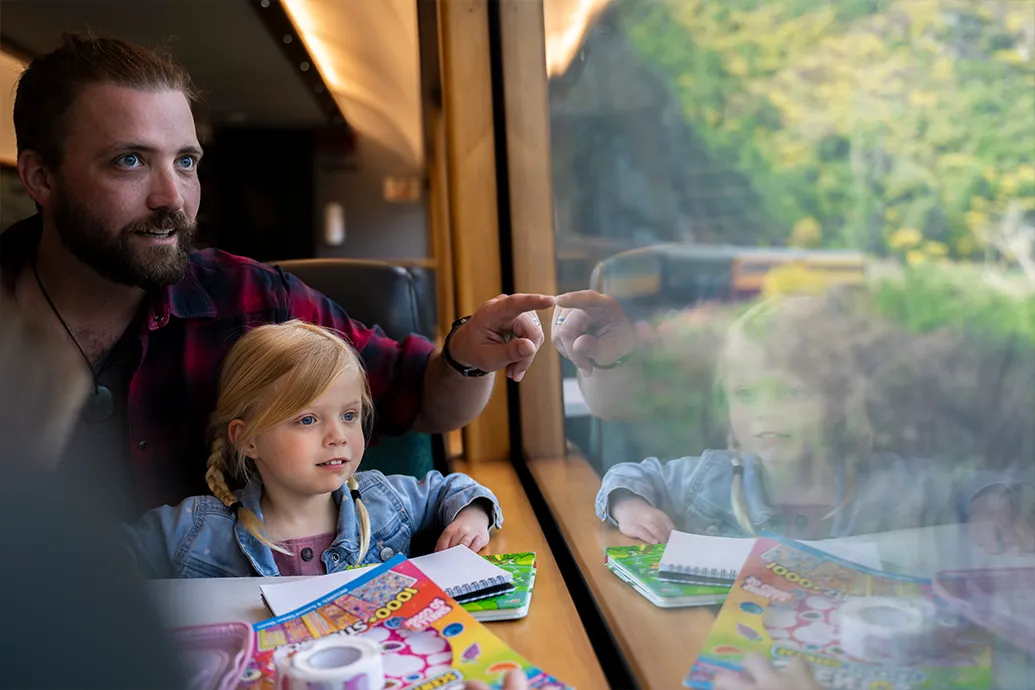
Before long, the bustling urban landscape gave way to the expansive Taieri Plain. Out the left window, Saddle Hill comes into view. In Māori tradition, the hill is also called Pukemakamaka, and is believed it to be the remains of a taniwha, a powerful supernatural being, known as Meremere, that also happened to carve out the Taieri Gorge with its tail. What other train journey can you literally ride the tail of a taniwha?
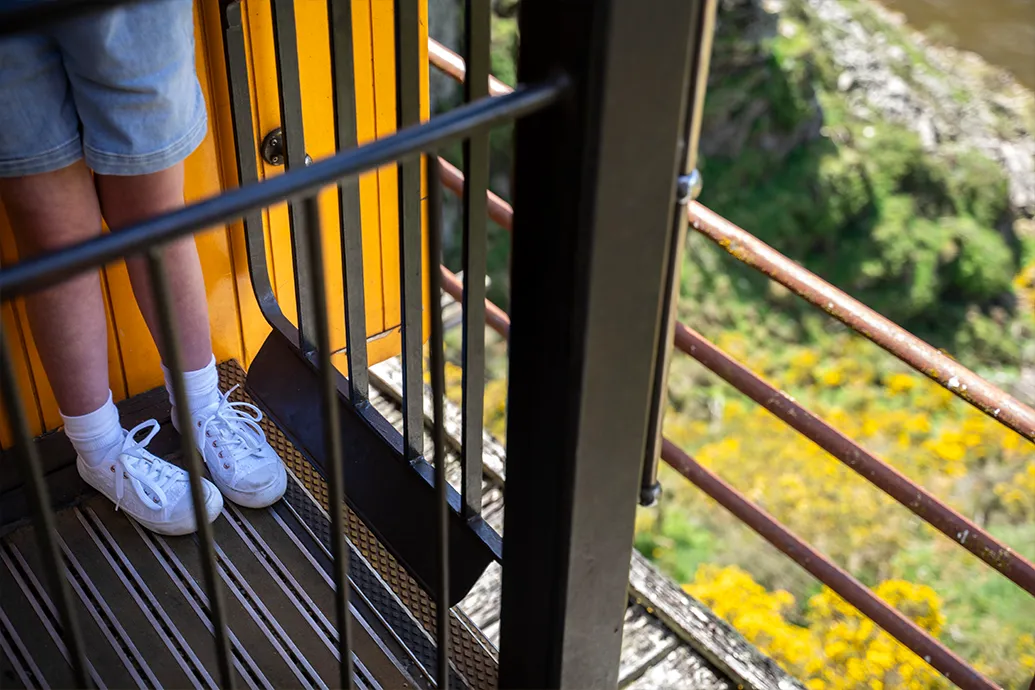
The café features freshly baked goods, handmade pies, and gourmet sandwiches which are beautifully displayed alongside a range of refreshing drinks. This isn’t just a scenic journey—it’s a full-sensory experience.
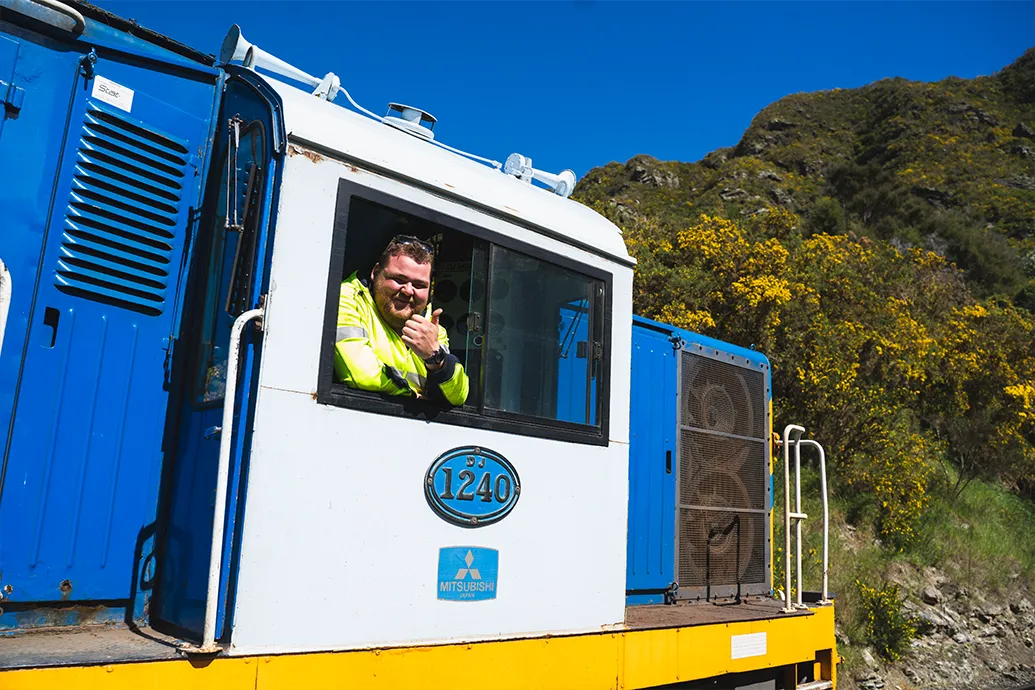
As the train moved further from civilisation, we were suddenly enveloped by rock walls, marking the beginning of the Taieri Gorge. Eager to capture the views, I grabbed my camera and made my way to one of the train’s open-air balconies to prepare for the first major landmark of the Gorge: the Wingatui Viaduct. Towering at 47m, this viaduct is an engineering marvel and is the largest wrought iron structure in Australasia. After slowly passing through a hand-carved tunnel, we emerged atop the viaduct revealing the sweeping valley and the river snaking between the trees far below.
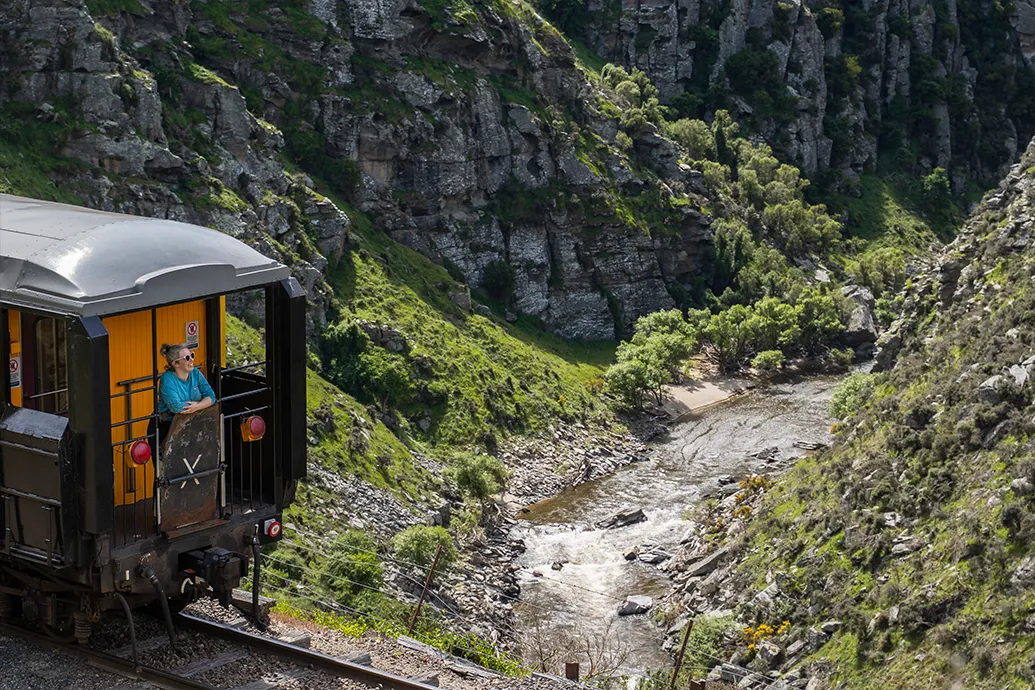
The river shrank below us as we began climbing towards the Notches: the crowning jewels of the Gorge. I felt a sense of awe as we crossed viaducts perched along the steep rocky cliffs and was amazed to learn the Notches track took two years to complete with the hammer-and-tap method: one person held a rock drill while another struck it with a sledgehammer.
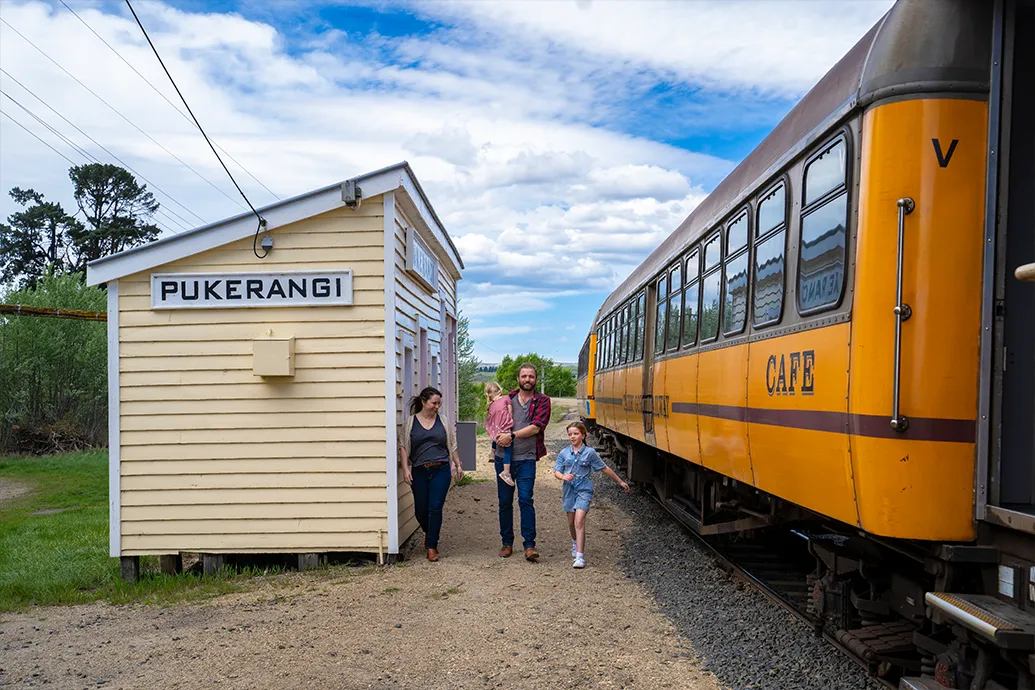
When the train pulled into Pukerangi - the trip’s destination and halfway point - we were greeted by a dozen stall holders selling handmade goods and crafts. We spent the next twenty minutes stretching our legs and browsing the local goods before reboarding for the journey home.
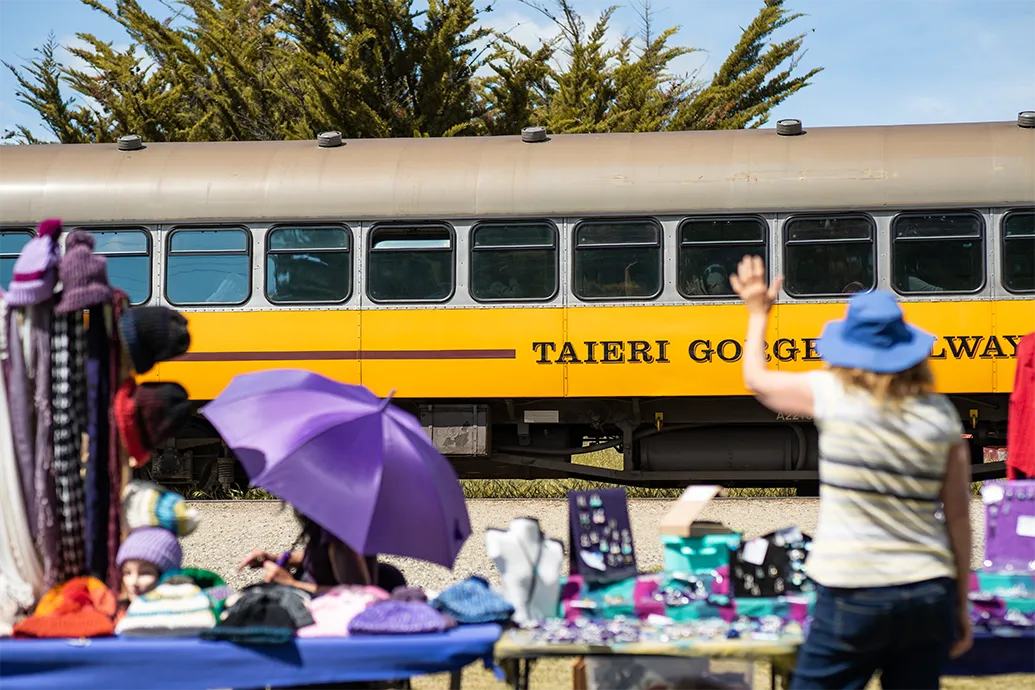
While the train carried us back to Dunedin, and civilisation, I found myself reflecting on the day—the awe-inspiring views, the stories that brought the landscape to life, and the rich history embedded in the 47km's of track, ten tunnels and 21 bridges. I felt immense gratitude to have a camera full of memories and the ability to experience one of New Zealand’s most captivating landscapes by rail.
Book a ticket here.
Written by Rosemary Irion
